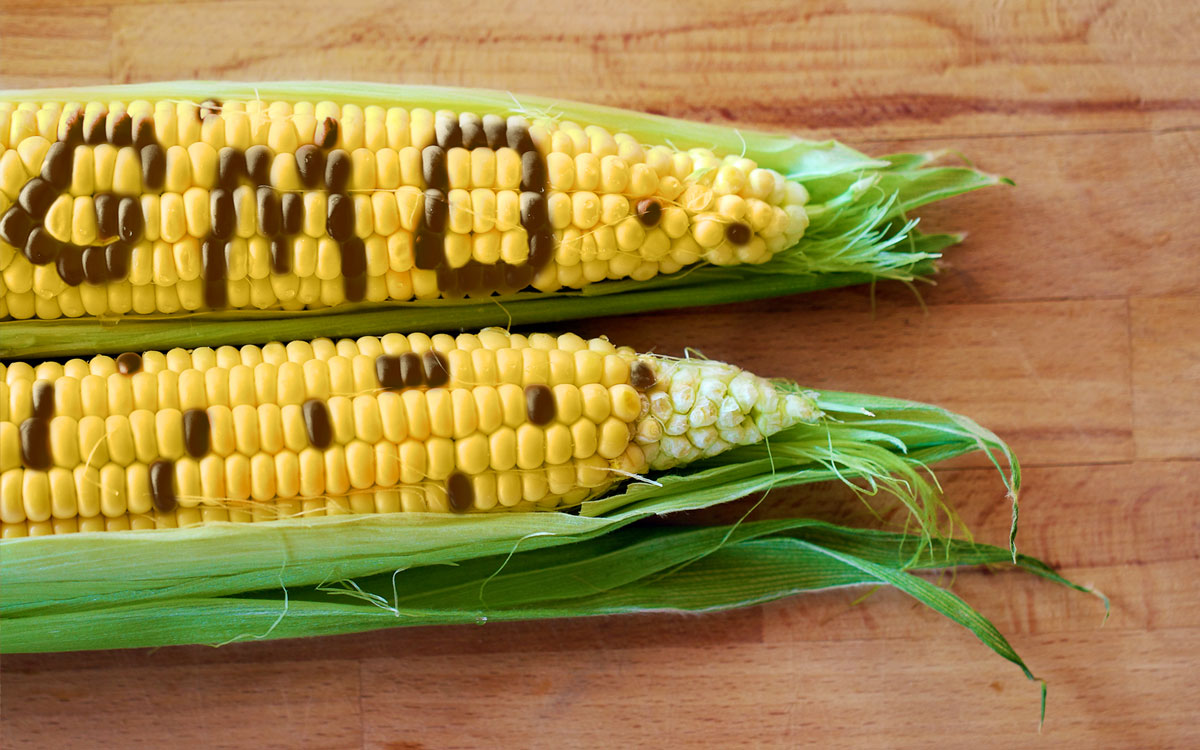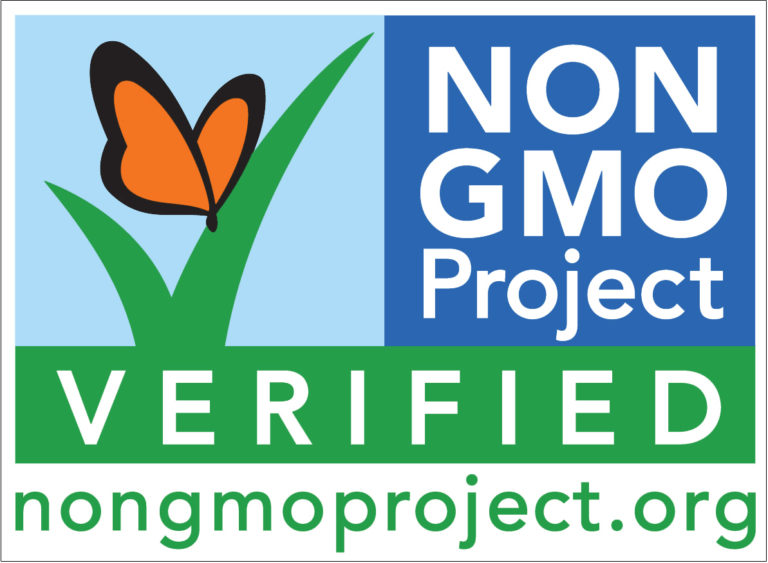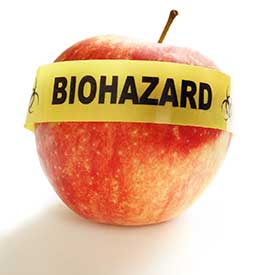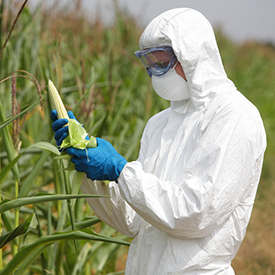What Is Non-GMO? What Are Genetically Modified Foods?

Non-GMO means non-genetically modified organisms. GMOs (genetically modified organisms), are novel organisms created in a laboratory using genetic modification/engineering techniques. Scientists and consumer and environmental groups have cited many health and environmental risks with foods containing GMOs.
As a result of the risks, many people in the United States and around the world are demanding “non-GMO” foods. The Organic & Non-GMO Report has created an ebook offering their top 13 tips for buying organic food to help keep your family safe and healthy. Download it for free HERE.
Genetically modified foods
 In genetic modification (or engineering) of food plants, scientists remove one or more genes from the DNA of another organism, such as a bacterium, virus, animal, or plant and “recombine” them into the DNA of the plant they want to alter. By adding these new genes, genetic engineers hope the plant will express the traits associated with the genes. For example, genetic engineers have transferred genes from a bacterium known as Bacillus thuringiensis or Bt into the DNA of corn. Bt genes express a protein that kills insects, and transferring the genes allows the corn to produce its own pesticide.
In genetic modification (or engineering) of food plants, scientists remove one or more genes from the DNA of another organism, such as a bacterium, virus, animal, or plant and “recombine” them into the DNA of the plant they want to alter. By adding these new genes, genetic engineers hope the plant will express the traits associated with the genes. For example, genetic engineers have transferred genes from a bacterium known as Bacillus thuringiensis or Bt into the DNA of corn. Bt genes express a protein that kills insects, and transferring the genes allows the corn to produce its own pesticide.
Genetic modification/engineering is a potentially dangerous technology
One of the main problems with genetic engineering is that the process of inserting genes into the DNA of a food plant is random; scientists have no idea where the genes go. This can disrupt the functioning of other genes and create novel proteins that have never been in the food supply and could create toxins and allergens in foods.

Genetic modification is a radical technology
Supporters of genetic modification say that the technology is simply an extension of traditional plant breeding. The reality is that genetic engineering is radically different. Traditional plant breeders work with plants of the same or related species to create new plant varieties. Genetic engineers break down nature’s genetic barriers by allowing transfers of genes from bacteria, viruses, and even animals—with unforeseen consequences.
Genetic modification is based on an obsolete scientific theory
Genetic modification is based on a theory called the Central Dogma, which asserts that one gene will express one protein. However, scientists working with the United States National Human Genome Research Institute discovered that this wasn’t true, that genes operate in a complex network in ways that are not fully understood. This finding undermines the entire basis for genetic engineering.
What genetically modified crops are currently approved to be grown in the US?

- Corn
- Soybeans
- Cotton
- Canola
- Sugar beets
- Alfalfa
- Papaya
- Yellow “crook neck” squash
- Zucchini
- “Arctic” apple
- “Innate” potato
rBGH (Recombinant Bovine Growth Hormone)
About 10% – 15% of cows in the US are injected with a genetically modified bovine growth hormone called rBGH (rBST). rBGH is banned in many countries due to negative health impacts on cows. In the US, major food retailers and restaurants such as Wal-Mart, Safeway, Starbucks, and McDonald’s only sell or serve rBGH-free milk.
How Can I Avoid Genetically Modified Foods
- Avoid processed foods containing ingredients from corn, soy, canola, sugar beets, and cotton.
More than 70% of processed foods found in retail stores and restaurants contain ingredients derived from GE corn, soybeans, canola, and cotton. In addition, half the sugar used in food products comes from GM sugar beets. - Look for Non-GMO Project verified products.
These food products have gone through a rigorous verification program to minimize the risk of GMO contamination, giving you the best assurance they are non-GMO. For more information visit www.nongmoproject.org. - Shop online at Thrive Market.
ThriveMarket.com is a new online store that offers up to 50% off the retail price on all your favorite organic and non-gmo brands. It’s a great way to avoid GM foods without breaking the bank and they have free shipping as well. Learn more HERE. - Eat organic.
Buying organic foods also offers assurance against the risks of genetic engineering because GM substances are prohibited in organic production. - Buy locally grown foods.
There is nothing better than locally produced fresh fruits and vegetables. Buying local supports farmers and keeps food dollars in the community. Another option is a community supported agriculture (CSA) program, which you pay a membership fee to a local farmer and receive fresh organic produce throughout the growing season. - Grow your own.
Gardening is a great hobby, nourishing to the body, mind, and soil. You can also participate in urban agriculture projects that are sprouting nationwide. - Utilize This Free Ebook.
The Organic & Non-GMO Report has created an ebook titled, “13 Tips for Buying Organic Food” which will show how to keep your family safe from the potential perils of GMOs. Download it for free HERE.